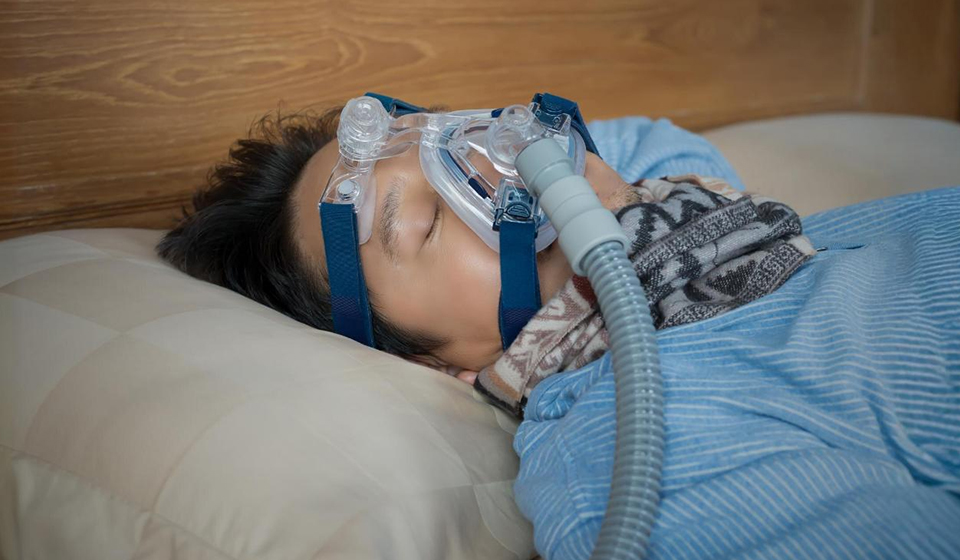Sleep apnea is a common but serious sleep disorder that affects millions of people worldwide. If left untreated, it can lead to a variety of health problems, including high blood pressure, heart disease, and stroke. In this blog, we’ll explore the causes, symptoms, and treatment options for sleep apnea. There are excellent resources and specialists available for sleep apnea in Houston who are equipped to help manage your condition.
What is Sleep Apnea?
Sleep apnea is a disorder in which breathing repeatedly stops and starts during sleep. Sleep apnea occurs when the muscles in the throat relax excessively, causing a temporary blockage of the upper airway. This prevents normal airflow and can result in frequent waking throughout the night, leading to poor sleep quality and daytime fatigue.
Causes of Sleep Apnea
Several factors can contribute to the development of sleep apnea, including:
1. Obesity
One of the leading risk factors for sleep apnea is obesity. Excess weight, especially around the neck and throat, can increase the likelihood of airway obstruction during sleep. Fat deposits can compress the airway, making it harder to breathe properly while lying down.
2. Age
Sleep apnea is more common in older adults, particularly those over the age of 40. As we age, the muscles in the throat and airway become more relaxed, which can contribute to airway obstruction. However, sleep apnea can occur at any age, including in children.
3. Family History
A family history of sleep apnea can increase your risk of developing the disorder. Genetics can play a role in the size and structure of your airway, making some individuals more susceptible to the condition.
4. Lifestyle Factors
Certain lifestyle factors can also contribute to the development of sleep apnea. Smoking, alcohol consumption, and the use of sedatives can relax the muscles in the throat, increasing the likelihood of airway obstruction during sleep.
Symptoms of Sleep Apnea
The symptoms of sleep apnea can vary, but the most common signs include:
1. Loud Snoring
While not everyone who snores has sleep apnea, loud and persistent snoring is a hallmark symptom of the condition. Snoring occurs when the airway is partially obstructed, causing vibrations in the throat. If the snoring is accompanied by pauses in breathing, choking, or gasping sounds, it may be a sign of sleep apnea.
2. Gasping for Air During Sleep
A person with sleep apnea may wake up suddenly, gasping for air, after experiencing a temporary pause in breathing. This interruption in breathing can occur multiple times throughout the night, resulting in poor-quality sleep.
3. Dry Mouth or Sore Throat
Waking up with a dry mouth or sore throat is another common symptom of sleep apnea. This is often caused by breathing through the mouth due to an obstructed airway during sleep.
4. Difficulty Sleeping or Insomnia
Many individuals with sleep apnea have trouble falling or staying asleep due to repeated disruptions in breathing. This can lead to insomnia, which makes it even harder to get restorative sleep.
Treatment Options for Sleep Apnea
Fortunately, sleep apnea is treatable, and there are several options available depending on the severity and type of the condition. Treatment aims to reduce or eliminate breathing interruptions during sleep, improving both sleep quality and overall health.
1. Oral Appliances
For those with mild to moderate sleep apnea, oral appliances (also known as mandibular advancement devices) may be an effective treatment. These devices are worn at night and work by repositioning the jaw to keep the airway open. Your dentist can fit you for a custom appliance that is comfortable and effective.
2. Lifestyle Changes
In some cases, making certain lifestyle changes can help reduce the severity of sleep apnea. Losing weight, avoiding alcohol or sedatives, quitting smoking, and sleeping on your side rather than your back can all help prevent airway obstruction and improve sleep quality.
3. Surgery
In severe cases or when other treatments are ineffective, surgery may be considered. Surgical options can include removing excess tissue from the throat, repositioning the jaw, or correcting structural abnormalities in the nasal passages or airway.
Conclusion
Sleep apnea is a serious condition that can have significant health consequences if left untreated. Recognizing the symptoms and seeking treatment is essential for improving your quality of life. Unident Family Dentistry in Houston offers a variety of solutions to help you manage and treat the disorder. From oral appliances to comprehensive care, Unident Family Dentistry can provide you with the treatment you need for a better night’s sleep and a healthier future. Schedule an appointment today to learn more about how sleep apnea treatment can improve your life.






